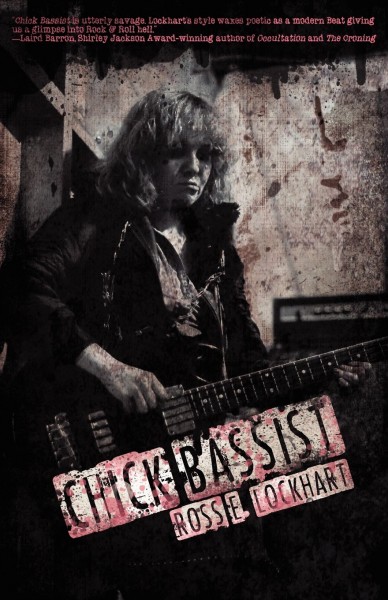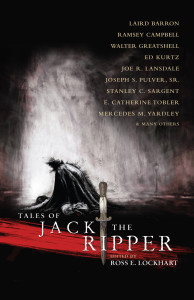E. Catherine Tobler is an extremely talented author. Her story “(To See the Other) Whole Against the Sky” is a 2013 Theodore Sturgeon Memorial Award Finalist. This fall, I’ll be publishing her ghostly tale “Once November” in my Word Horde anthology Tales of Jack the Ripper.
SFWA, also known as the Science Fiction Writers of America, “is a professional organization for authors of science fiction, fantasy and related genres.” Over the last few years, I’ve had many authors exclaim their excitement over qualifying to join SFWA because I bought a story or novel from them. I, however, am not a member of SFWA. Regardless, the organization (and its former vice president, Mary Robinette Kowal) has been a great deal of help–a lifeline, if you will–to myself and a large number of other refugee authors over the last couple of months as we’ve navigated the uncertain waters of Night Shade Books’ collapse and sale to Skyhorse/Start.
Because of this lifeline, I’ve very seriously been considering joining SFWA once the dust is settled and I’ve finally been paid for my work.
Problem is, SFWA has a little bit of an image problem right now. Okay, maybe not so little. Recently, when it comes to respecting female authors and editors, SFWA has chosen a counterproductive path, giving a platform in the official SFWA Bulletin to a handful of male authors who have decided to wear their sexism outrageously, modeling their antiquated sexism on the runway of our collective unconscious as if they were wearing chainmail bikinis.
While most authors and readers involved in the fantastic genres want to see their favored genres grow up and adapt to the pluralistic, multicultural world we live in, these curmudgeonly dinosaurs have frustrated many by their slavering musings on how “lady writers” and “lady editors” would look in swimsuits, by their patronizing admonitions that female authors should emulate Barbie and “maintain her quiet dignity the way a woman should.” Now, in the most recent SFWA Bulletin, a pair of authors who I imagine as Statler and Waldorf are apparently at it again, calling those offended by this seeming trend of sexism “SFWA liberal fascists” and dismissing these authors’ frustration as thought control and censorship. For a professional organization, giving this sort of poisonous, vitriolic rhetoric a platform seems anything but professional. And to be dismissive of more than half the population is ridiculous at best.
And because of this E. Catherine Tobler is leaving SFWA. You can (and should) read her reasons here.
Look, I really want to show SFWA some love for all they’ve done for me and the other NSB refugees over the last couple of months, even though I’m not (yet) a member. I’d really like to recommend the organization to other authors. I’d love to join the club and be an active part of SFWA’s larger community of writers and editors. But when I see writers I respect and admire leaving the flock in frustration, it not only gives me pause, it damages the reputation of the organization as a whole.



